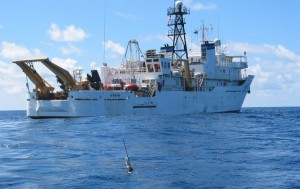New project to investigate global warming over decadal time scales

Scientists from the National Oceanography Centre will work alongside those from the University of Leeds’ Priestley International Centre for Climate and eight other research organisations as part of a major new multidisciplinary research project to investigate decadal global warming trend variance.
Over the last decade, a slowdown has been observed in the global warming of the earth’s surface, although heat is still accumulating in other parts of the climate system, such as the deep ocean. Potential causes for these variations include the effects of volcanic activity, solar radiation, greenhouse gases and atmospheric aerosols and atmospheric and ocean circulation. The new project, called SMURPHS (“Securing Multidisciplinary Understanding and Prediction of Hiatus and Surge events”) will investigate the impact of each of these factors on the observed variation in global warming.
Dr Bablu Sinha, project lead for NOC, said, “Climate change is recognized as one of society’s most pressing problems. The SMURPHS project will address the question of why the rate of surface warming varies on decadal time scales and will inform government policies on climate change adaptation. This will fill important gaps in the understanding of the different processes controlling climate and how they interact with each other.”
The University of Leeds is leading this Natural Environmental Research Council (NERC) funded project with other partners the universities of Southampton, Reading, Oxford, Exeter, Edinburgh and East Anglia, as well as the Met Office and the British Antarctic Survey.
